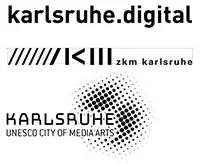The Profit-Driven Energy Paradox
Currently, there is minimal incentive to conserve energy, as the economic gains from producing, distributing, and consuming energy far outweigh any potential savings. In the name of continuity, the future is fed to the past: existing infrastructures, habits, and power relations are sustained by drawing down resources that are not replenished on comparable timescales.
However, a critical juncture will arise when global demand for energy surpasses the resources available to produce it. At that point, the economic logic inverts. Conservation, efficiency, and restraint cease to be costs imposed on growth and instead become the primary sources of value. Waste no longer accelerates continuity; it undermines it.
In that regime, continuity is preserved only by reversing the earlier flow. The past is fed to the future: legacy systems are dismantled or repurposed, accumulated knowledge substitutes for raw throughput, and long-term viability constrains short-term profit. What was once sacrificed to maintain momentum becomes the organizing principle of the economy itself.
Unpower to the People
What we currently regard as a crisis of energy production, solvable only by states and multinational corporations, is actually a crisis of energy consumption: one that can be addressed by individuals, by all of us. Our goal is to empower individuals while unpowering the energy demands of the internet.
The Underlying Issue
The Internet has revolutionized communication and access to information, but its environmental impact is significant. Annually, the Internet consumes approximately 1 petawatt hour of electricity – roughly 4% of global electricity consumption – and generates 432 million tons of carbon dioxide. This energy is required to operate websites, streaming services, social media platforms, email systems, and other online services.

The Internet’s energy demands are growing faster than the improvements in energy efficiency. The surge in data traffic, driven by increasing online activity and the widespread use of mobile devices, continues to escalate energy consumption. Furthermore, while energy-efficient data centers reduce storage costs, the constant need for cloud-based data access negates these savings, as the energy required for real-time access remains substantial.
Beyond major contributors like video streaming, cryptocurrency mining, online gaming, social media, AI and cloud computing, even private websites contribute to the rising energy demands of the Internet, making it a shared responsibility to address this growing issue.
A Solution
minimal carbon advances a cultural technique that foregrounds the relationship between information and energy consumption, highlighting the direct impact of digital practices on energy use. The increasing demand for digital energy is a consequence of decisions made daily by publishers, software developers, web designers, and Internet users. minimal carbon‘s approach not only fosters critical awareness of these dynamics but also introduces a technologically advanced web solution that substantially reduces the power consumption of websites. By integrating cultural awareness with technical innovation, this solution addresses the escalating energy demands of the digital ecosystem.
So how does it work?
minimal carbon eliminates unnecessary elements and systemic bottlenecks that contribute to excessive energy consumption, such as tracking, advertising, third-party traffic, autoplay videos, video backgrounds, outdated browser support, complex scripts, effects, and web fonts. Instead, it focuses on optimizing performance by employing modern image and video formats, resizing images appropriately, compressing data, using browser-native fonts, and compressing HTML, JavaScript, and CSS source codes. Furthermore, it leverages sustainable server infrastructure to reduce the overall ecological footprint while maintaining functionality and user experience.
GEO-Ranking vs SEO-Ranking
By optimizing websites, minimal carbon has demonstrated that significantly reducing the Internet’s energy consumption is achievable. The advantages extend beyond sustainability: optimized sites load faster, improving usability in regions with limited bandwidth and for users with restricted data access. Additionally, these sites offer enhanced security, better SEO-ranking, and even superior GEO-ranking, making them more accessible and visible to a broader audience while reducing their environmental impact.
Proof of Concept
Our prototype incorporates a fully automated ecological conversion process driven by advanced software. This automation ensures the seamless reduction of its ecological footprint by 95%, optimizing sustainability without compromising on design or functionality. The software autonomously manages resource efficiency and environmental impact, allowing for a streamlined, eco-friendly operation:
The Top 0.002% – 1 in 50,000
minimal carbon has been selected by Pioneer, a startup accelerator dedicated to fostering creative and ambitious innovators. Since its founding in 2018, Pioneer has supported over 150 companies with more than 300 founders across 50+ countries, representing a collective valuation exceeding $1 billion. Backed by Stripe and Marc Andreessen, Pioneer employs an advanced AI-driven process, scraping 100 million domains weekly and narrowing down the top 0.002% for human evaluation – ultimately identifying minimal carbon as one of its standout innovations.
Still, we decided to stay independent. While recognition and support from a global accelerator could have accelerated growth, we chose to chart our own path, maintain control over our mission, and define our priorities without external constraints. Independence allows us to innovate on our terms, prioritizing long-term impact over short-term scaling.
Source Code
https://github.com/johanjohan/minimalcarbon
